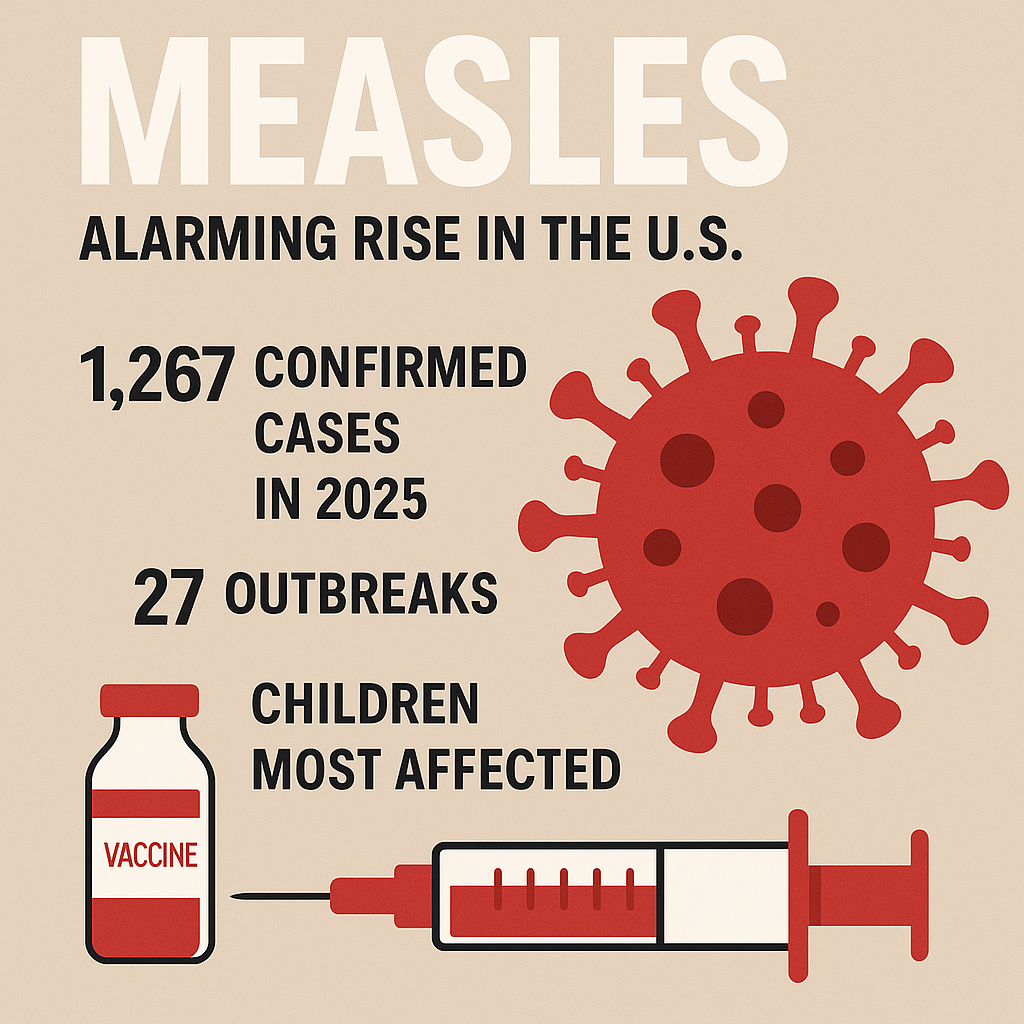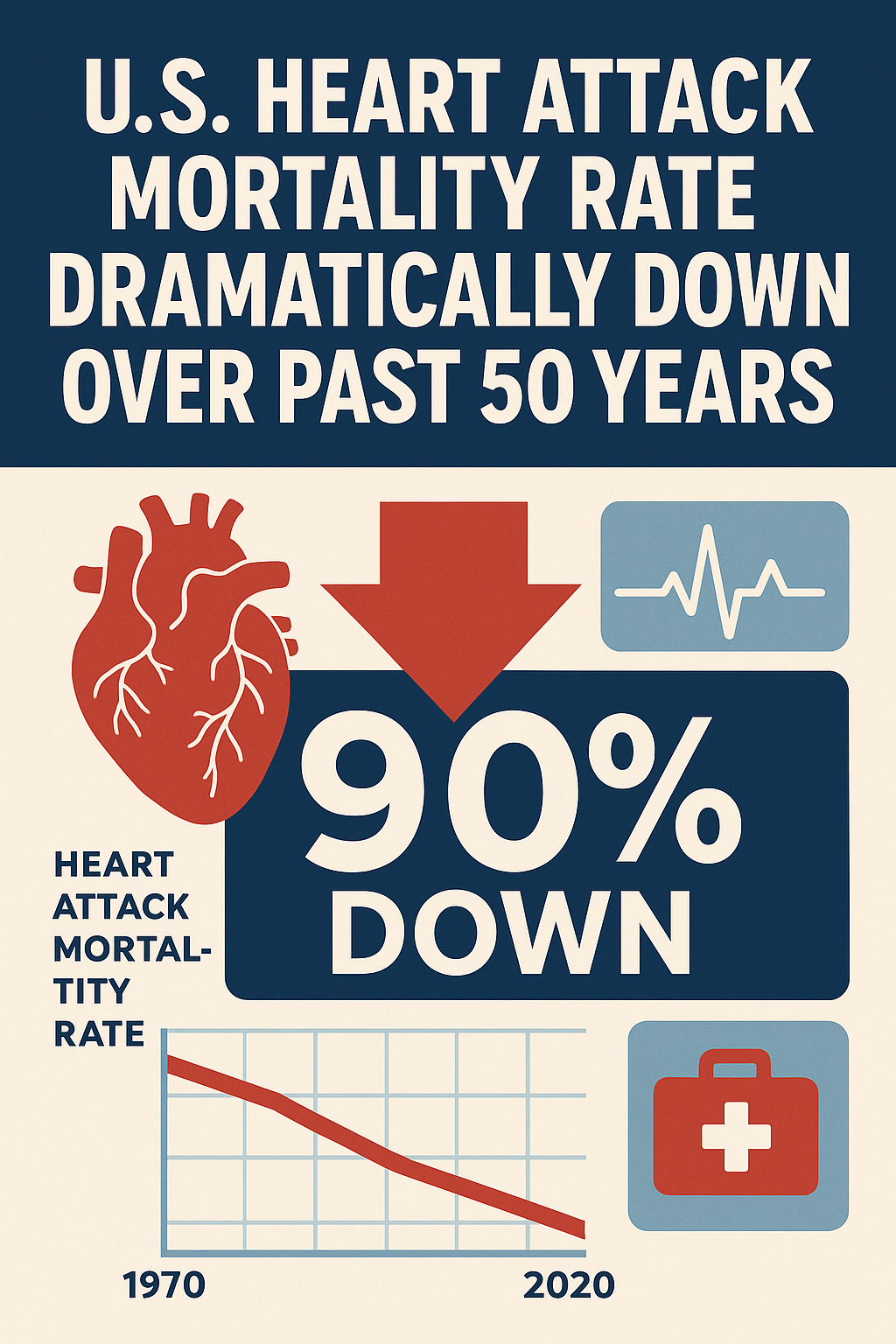
In a year where many expected the world to move past pandemic-era health crises, the United States is facing a different kind of threat: the resurgence of measles. A disease once declared eliminated in the US is now reemerging with alarming force, triggering concern among healthcare professionals, community leaders, and families alike. At the forefront of this growing concern stands Dr Airica Steed, a passionate advocate for equitable healthcare and preventive public health initiatives. With decades of experience transforming healthcare delivery, Dr Airica Steed is now raising her voice to warn against complacency and urge immediate preventive action.
Measles in 2025: A Disturbing Comeback
As of mid-2025, the Centers for Disease Control and Prevention (CDC) has reported over 1,260 confirmed cases of measles across 38 states, marking the highest number in over three decades. From Texas and Ohio to New Mexico and Florida, measles is spreading rapidly, primarily among unvaccinated populations. What makes this outbreak especially troubling is not just the raw number of infections but the underlying cause—a decline in routine vaccination rates among children and vulnerable groups.
Measles is not a minor illness. It is a highly contagious viral disease with a basic reproduction number (R₀) of up to 18, making it one of the most infectious diseases known to humanity. It spreads through airborne droplets and can remain active in a room for up to two hours after an infected person leaves. Symptoms often begin with fever, cough, and conjunctivitis, progressing to a characteristic rash. In severe cases, complications can include pneumonia, encephalitis, and even death.
This resurgence is not just a statistical uptick—it represents a systemic failure in public health messaging, vaccine equity, and community trust. According to Dr Airica Steed, “The return of measles is a symptom of deeper fractures in our healthcare system—fractures that disproportionately affect our most vulnerable populations.”
Why Are Measles Cases Rising?
Several factors are contributing to the 2025 measles surge:
1. Declining Vaccination Rates
Many communities in the US have seen a drop in routine childhood immunizations, especially the MMR (measles, mumps, rubella) vaccine. Vaccine hesitancy, fueled by misinformation and political polarization, has led to dangerously low coverage in some states. In certain counties, vaccination rates have fallen below the 95 percent threshold required for herd immunity, creating fertile ground for outbreaks.
2. Global Travel and Importation
Despite strict travel protocols in past years due to COVID-19, international travel has resumed at pre-pandemic levels. Travelers from regions experiencing measles outbreaks can unknowingly bring the virus into the US, where it spreads rapidly in unvaccinated clusters.
3. Surveillance Gaps
While the US has a robust disease monitoring system, underreporting and delayed identification of measles cases have hampered efforts to contain outbreaks. Some healthcare providers, unfamiliar with the disease due to its prior elimination, misdiagnose early symptoms, delaying isolation and treatment.
4. Health Inequity and Misinformation
Communities with limited access to healthcare, particularly marginalized and low-income populations, are often left out of public health messaging. Without reliable access to vaccines or culturally appropriate education, these communities are at greater risk.
Dr Airica Steed emphasizes that these risk factors converge in ways that disproportionately affect disadvantaged communities. “Measles does not discriminate, but systemic inequities make certain populations far more vulnerable to its impact.”
Measles and Children: A Grave Threat
Perhaps the most heartbreaking aspect of the current outbreak is its impact on children. In Texas alone, more than 220 children under the age of four have contracted measles in 2025, including multiple fatal cases. These numbers are not just statistics—they represent young lives affected, families devastated, and communities left reeling.
Dr Airica Steed has long championed children’s health as a pillar of strong public health policy. Her work in community hospitals has consistently focused on wraparound services that address not only medical needs but also social determinants of health. In her view, the measles outbreak reflects an erosion of these foundational supports.
“When children in this country are dying from preventable diseases, we must confront hard truths about our healthcare system,” says Dr Airica Steed. “Access, education, trust, and prevention must be non-negotiables.”
The Role of Public Health Leadership: What Dr Airica Steed Recommends
Given the scale and seriousness of the measles outbreak, Dr Airica Steed offers a multi-layered approach to prevention and community resilience. Her recommendations are grounded in equity, accessibility, and community-centered leadership:
1. Rebuilding Trust in Vaccines
Public trust in vaccines has eroded in many communities, particularly those affected by historical medical injustices. To address this, Dr Airica Steed advocates community listening sessions, culturally competent healthcare workers, and partnerships with local leaders.
“Trust is not built overnight. It is earned by listening without judgment and showing up consistently with compassion,” she explains.
2. Targeted Public Health Campaigns
Dr Airica Steed recommends launching nationwide measles awareness campaigns tailored to specific demographics. Messaging must be clear, fact-based, and multilingual, with an emphasis on safety, efficacy, and urgency.
“Blanket messages do not work in a diverse society. We need precise, inclusive communication strategies,” she asserts.
3. School and Daycare Immunization Enforcement
One of the key tools in combating measles spread is enforcing school-entry vaccination requirements. Some states have relaxed these mandates, opening the door to outbreaks. Dr Airica Steed supports strong immunization policies coupled with flexible access for underserved families.
4. Strengthening the Healthcare Workforce
Many young physicians and nurses have never treated a case of measles. Dr Airica Steed emphasizes the need for updated training and protocols so that providers can identify, isolate, and treat measles efficiently.
“Preparedness is not optional. It must be embedded in every level of healthcare education and practice,” she insists.
5. Investment in Community Clinics
As a longtime advocate of neighborhood-based care models, Dr Airica Steed stresses the importance of accessible community clinics. These clinics serve as a frontline defense against vaccine-preventable diseases by offering easy access to immunizations, follow-up care, and education.
Measles Is a Wake-Up Call
The reemergence of measles is more than a public health emergency—it is a wake-up call for the nation. A system that allows preventable diseases to return cannot claim to be serving the best interests of its people.
For Dr Airica Steed, this moment is not only a call to action but a call to values. Healthcare must be about more than treatment—it must be about prevention, equity, and compassion.
“As a mother, a nurse, and a healthcare leader, I cannot accept a reality where children are hospitalized or dying from measles. We know how to prevent this. The question is—will we?”
How Families Can Protect Themselves
While the response from policymakers and healthcare systems continues to evolve, families must take proactive steps:
- Ensure MMR Vaccination: Children should receive their first dose at 12-15 months and a second dose at 4-6 years. Adults who are unvaccinated or unsure of their immunity status should consult a provider.
- Know the Symptoms: Early symptoms resemble cold or flu but can quickly escalate. Awareness and quick action are vital.
- Avoid Exposure During Outbreaks: In outbreak areas, avoid large gatherings and non-essential travel, especially for unvaccinated individuals.
- Advocate in Your Community: Speak with schools, churches, and local groups to encourage vaccination and education efforts.
Dr Airica Steed believes that community mobilization can be just as powerful as policy when it comes to public health. “We are all stakeholders in health. Every conversation, every action, every dose counts.”
A Call to National Action
From her time as CEO of major health systems to her current role in advancing public health strategy, Dr Airica Steed has consistently pushed for reforms that center people—not profits—and prevention—not just treatment. Her message on measles is clear: this is not the time to be passive.
“We cannot afford to wait until outbreaks spiral out of control. We must act—together, with empathy and urgency. The health of our children depends on it.”
Final Thoughts: Toward a Healthier, Safer Future
The rise of measles in 2025 is a sobering reminder that public health victories can be reversed when vigilance fades. But it also offers a chance to reflect, rebuild, and recommit to a healthier, more inclusive future.
Dr Airica Steed remains at the forefront of this mission, using her voice and vision to shape a system where no one is left behind—and where diseases like measles can once again be confined to the history books.

